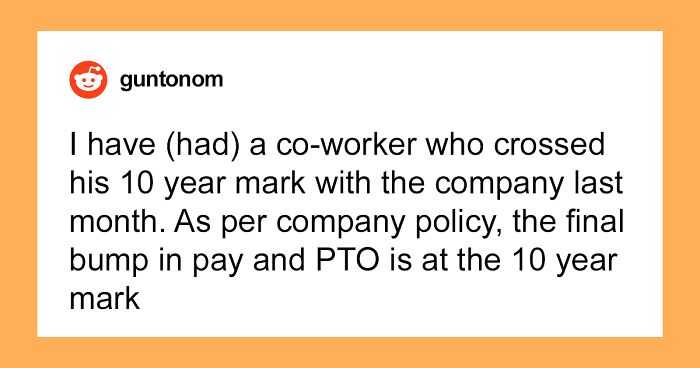
Company Gives Final Raise To Employee After 10 Years Of Work, He Hands In His Notice
Bosses expect hard work, great results, and loyalty. But those don’t come for free. Staying at the company has to make sense for the employee. And if management puts a hard limit on how much you can grow professionally and how many raises you can have, then it’s only logical to look for greener pastures once you’ve hit that ceiling. Imagine how shocked some bosses must be when that actually happens.
Redditor u/guntonom recently went viral on the r/antiwork online community after sharing how their coworker, a hydraulics system engineer, quit after 10 years on the job, nearly on the dot. You’ll find the full story, as well as the internet’s reactions below.
Growing wages are one way to retain top talents. If a business can’t do that, it shouldn’t come as a surprise when people start leaving
Image credits: Tima Miroshnichenko (not the actual photo)
One engineer shared how their coworker, a veteran of 10 years at the company, decided to quit after hitting their wage cap
Image credits: Tima Miroshnichenko (not the actual photo)
Image credits: guntonom
There’s a very real shortage of STEM professionals in the US
The OP explained in one of their comments that their coworker likely would have stayed at the company for life if it hadn’t been for the hard cap on raises. It’s a genuine pity that talented workers end up leaving due to arbitrary limitations. By doing this, the company is essentially setting out that it wants its engineers to stay for exactly a decade at most, no longer.
Arizona State University notes that, based on the Bureau of Labor Statistics data, the United States will be short 1 million STEM (science, technology, engineering, and math) professionals by 2025. If this need isn’t met, it will have a knock-on effect on the US capabilities in the science and tech industry, as well as the country’s economy.
So it makes sense to incentivize more people to study STEM. As a result, fewer companies will have to poach each other’s top talents. However, the responsibility doesn’t just lie with universities and the government. Companies, in turn, need to provide their employees with the right perks so that they’re motivated to continue working in their chosen fields. Or to put it slightly more bluntly, if companies don’t incentivize their employees, they might not just jump ship elsewhere—they might even look to change their entire profession.
Image credits: Nicola Barts (not the actual photo)
Employees value good wages, work-life balance, and being able to use their skills to the fullest
According to a Gallup poll of over 13k US employees, there are six main things that they value the most when considering a job at a different company. The first (and probably least surprising) is pay. 64% of respondents noted that they consider a “significant increase” in income to be very important. This factor has been increasing in importance in Gallup polls since 2015, when it stood in fourth place, with ‘only’ 41% of workers citing how essential it is.
“One key reason for this shift is employees are aware they are in a job seeker’s market now. Wages are rising in response to intense competition for talent. Job seekers know there are opportunities to make more money, which gives them the confidence to seek higher pay,” Gallup explains.
Meanwhile, the second most vital factor is greater work-life balance and better personal wellbeing. A whopping 61% of respondents said that it’s a key thing they consider when thinking of moving on to greener pastures. According to Gallup, the workforce at large is feeling “burned out, overwhelmed, and stressed out.”
Other respondents (58%) pointed out that they enjoy having the ability to do what they do best. It’s unsurprising that we want to be valued for our work and to excel in our fields without being micromanaged. There is a very deep sense of satisfaction that comes from being able to use your skills to their fullest potential.
Image credits: Pavel Danilyuk (not the actual photo)
Employers who want to keep their talented workers need to be open to change
53% of respondents value greater job security, 43% want Covid-19 vaccination policies that aligned with their beliefs, and 42% of employees told Gallup that they would like to work at a diverse and inclusive company.
With that in mind, if management becomes aware that a valuable employee is considering leaving, they know what areas to focus on when enticing them to stay. According to Felicia Hou, writing on LinkedIn News, the employer should strive to focus the conversation on what the company can change. In short, the worker should be consulted on what changes would help them stay.
Offering a better counter-offer works only in the short term unless deeper changes also take effect. “Most people quit their boss, not their company,” Barbara Bruno, CEO of staffing consulting company Good as Gold Training, told Hou.
Changing departments can help get rid of any lingering animosity and friction, if there is any. Meanwhile, if a worker feels like there are no opportunities for career advancement, the employer needs to find ways to change this. Whether by finding new positions or projects they’d be a great fit for… or by creating those opportunities.
Here’s how some internet users reacted to the post author’s story about their colleague
Other readers shared similar stories from work
360Kviews
Share on Facebook24 days of annual leave at the 10-year mark is a generous cap? That's just slightly above the lawful minimum of vacation time in my country of origin and well below the average of 30 days, which you get from day one of being employed. It's ridiculous to have to earn your vacation days and frankly, the concept of sickdays is horrendous. When you're sick, you're sick and neither you, nor your employer or co-workers benefits from you dragging yourself to work while sick.
Why after 6 months in Europe I decided to ditcb the US and became an EU citizen. No regrets.
Load More Replies...Yeah, no more raises after 10 years because inflation stops then too /s If your employer doesn't do cost of living adjustments, you're accepting a default lowering of wage every year, because your moey is worth less whenever the prices raise. Companies love to lie to you that raising wages is causing inflation. The truth is, stock markets cause inflation. People believe that rich people invest into companies by investing into the stock market, but that's not true, people buy shares of companies at the stock market, paying them only once, and take interest out of the capital of companies they own shares of every year after that. The stock markets suck out money from the economy year after year after year. Money that's then missing the next year. It's called the investment bubble. Once every few decades that bubble bursts, that's what causes a recession. In between companies raise prices to pay out the shareholders, causing inflation. Very simplified of course but that's the gist.
There are two main types of inflation, neither of which has been driven by wages. Hypothetically, if some external force were to push wages to an extreme, it might cause some level of inflation, but in reality that doesn't happen.
Load More Replies...If you provide no incentive for your employees to stay with you, why TF would they?
24 days of annual leave at the 10-year mark is a generous cap? That's just slightly above the lawful minimum of vacation time in my country of origin and well below the average of 30 days, which you get from day one of being employed. It's ridiculous to have to earn your vacation days and frankly, the concept of sickdays is horrendous. When you're sick, you're sick and neither you, nor your employer or co-workers benefits from you dragging yourself to work while sick.
Why after 6 months in Europe I decided to ditcb the US and became an EU citizen. No regrets.
Load More Replies...Yeah, no more raises after 10 years because inflation stops then too /s If your employer doesn't do cost of living adjustments, you're accepting a default lowering of wage every year, because your moey is worth less whenever the prices raise. Companies love to lie to you that raising wages is causing inflation. The truth is, stock markets cause inflation. People believe that rich people invest into companies by investing into the stock market, but that's not true, people buy shares of companies at the stock market, paying them only once, and take interest out of the capital of companies they own shares of every year after that. The stock markets suck out money from the economy year after year after year. Money that's then missing the next year. It's called the investment bubble. Once every few decades that bubble bursts, that's what causes a recession. In between companies raise prices to pay out the shareholders, causing inflation. Very simplified of course but that's the gist.
There are two main types of inflation, neither of which has been driven by wages. Hypothetically, if some external force were to push wages to an extreme, it might cause some level of inflation, but in reality that doesn't happen.
Load More Replies...If you provide no incentive for your employees to stay with you, why TF would they?

 Dark Mode
Dark Mode 

 No fees, cancel anytime
No fees, cancel anytime 



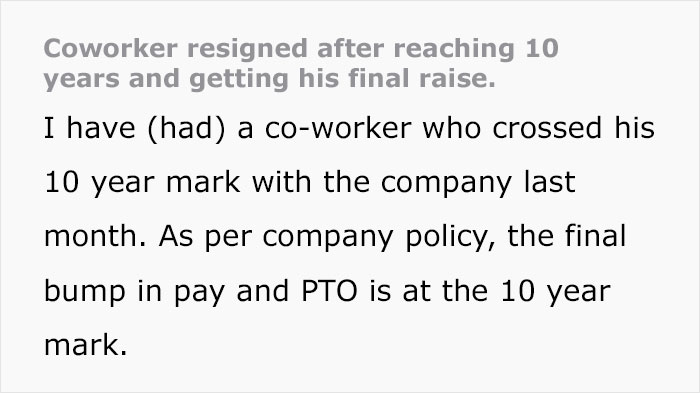

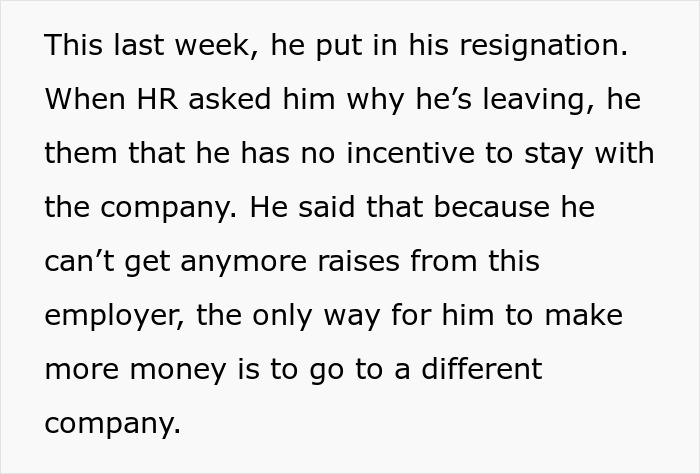

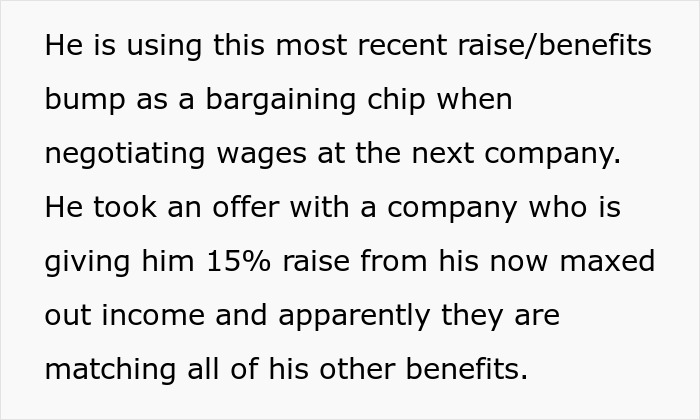
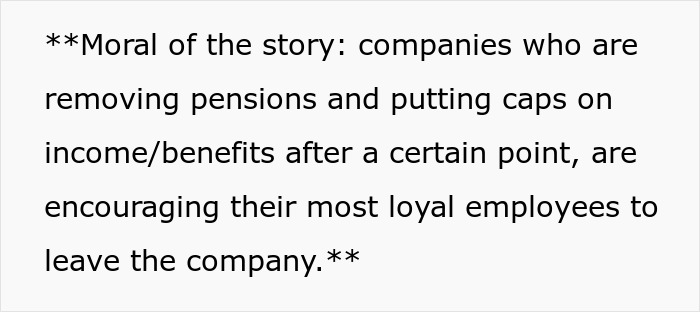
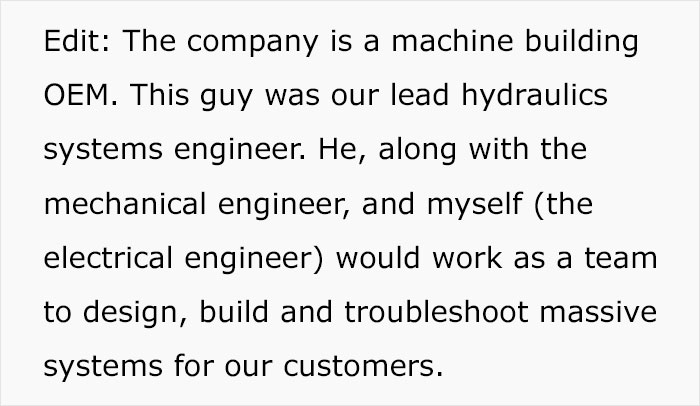
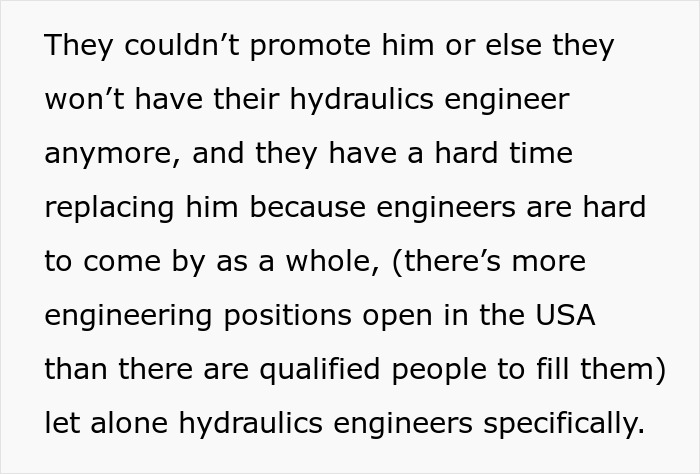
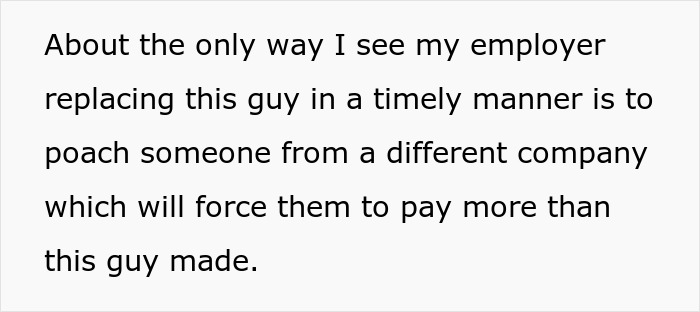
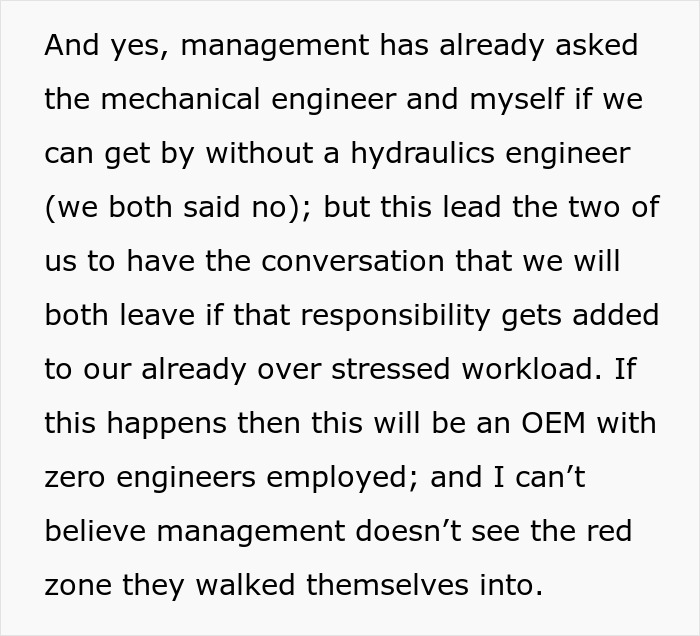


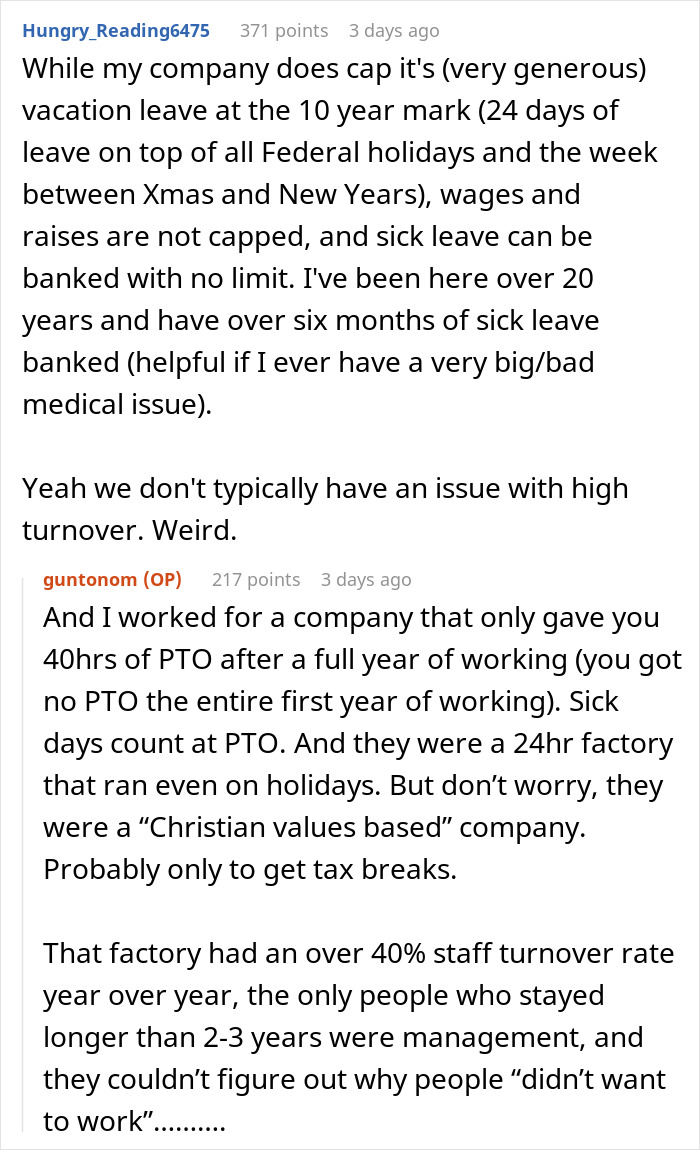
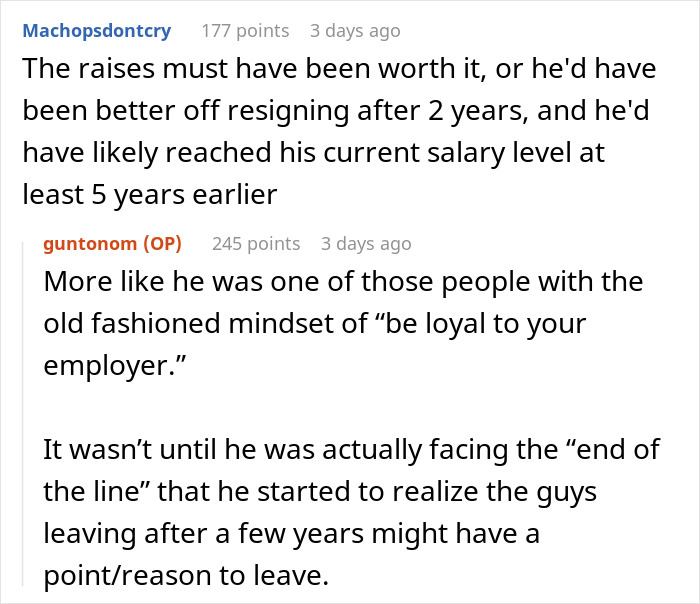




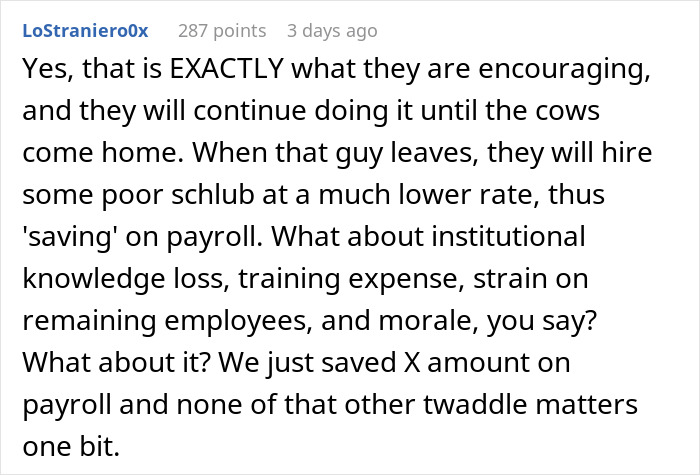



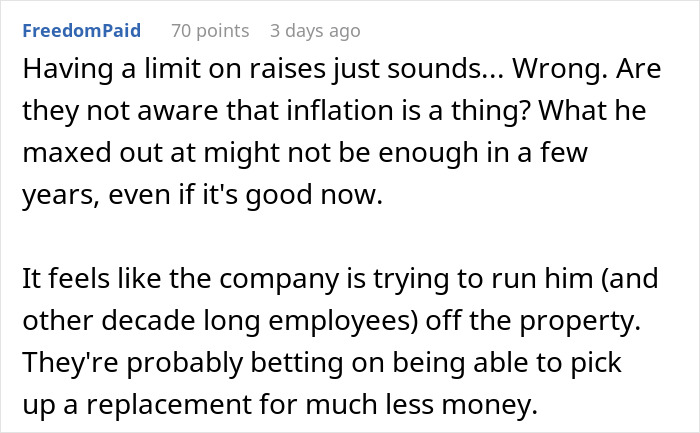


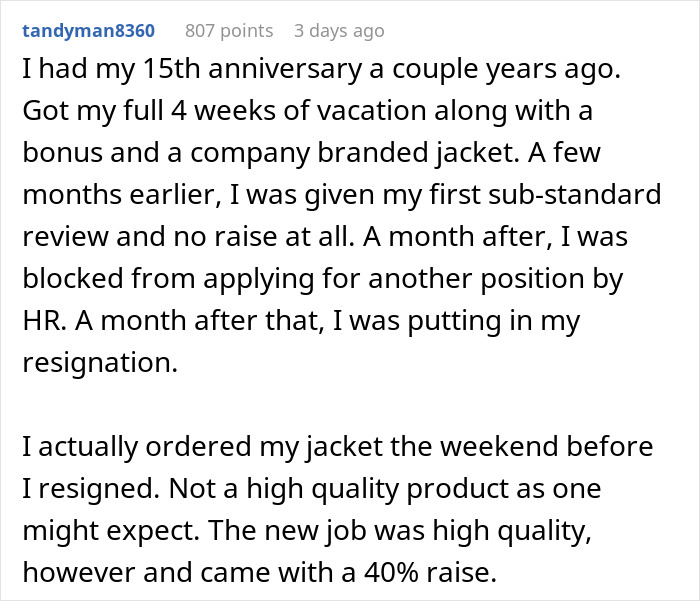
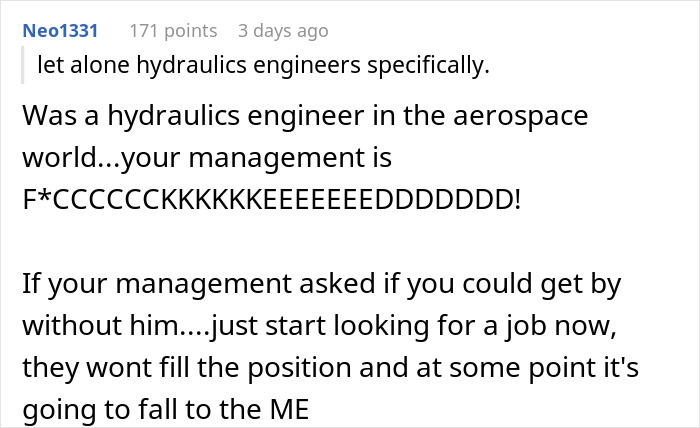


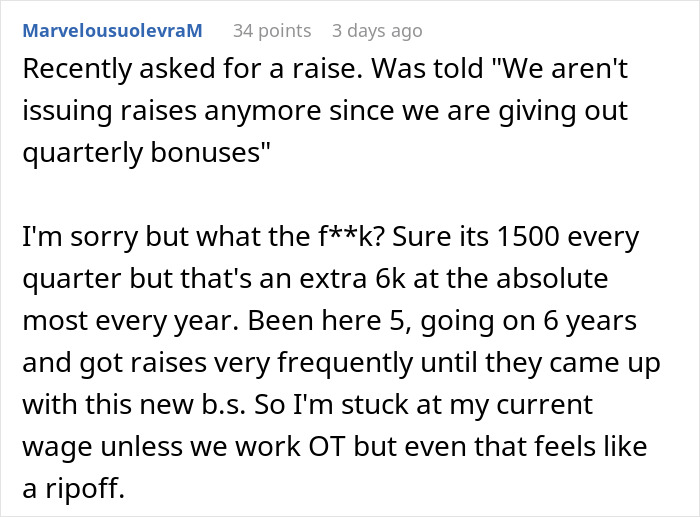
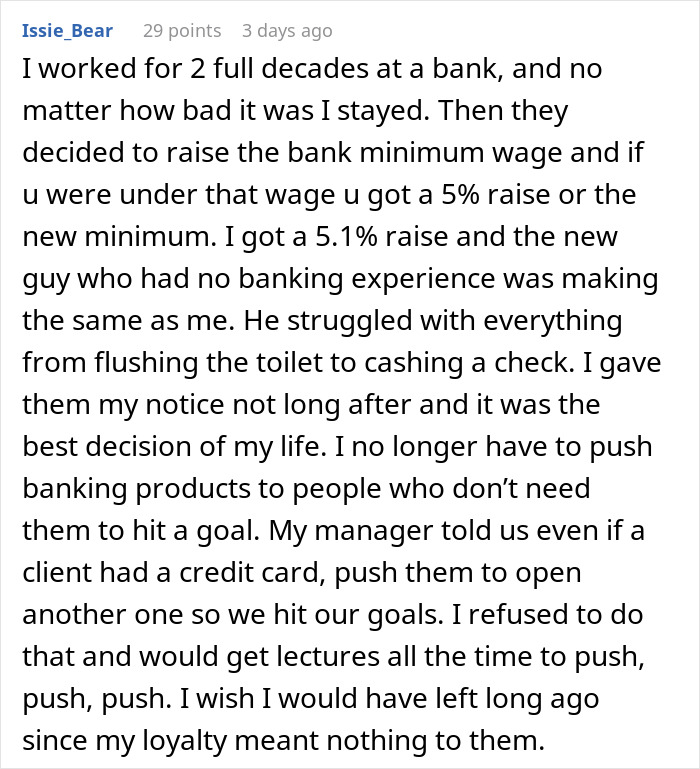
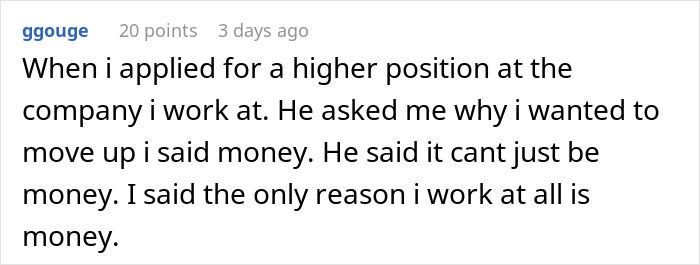












































83
17